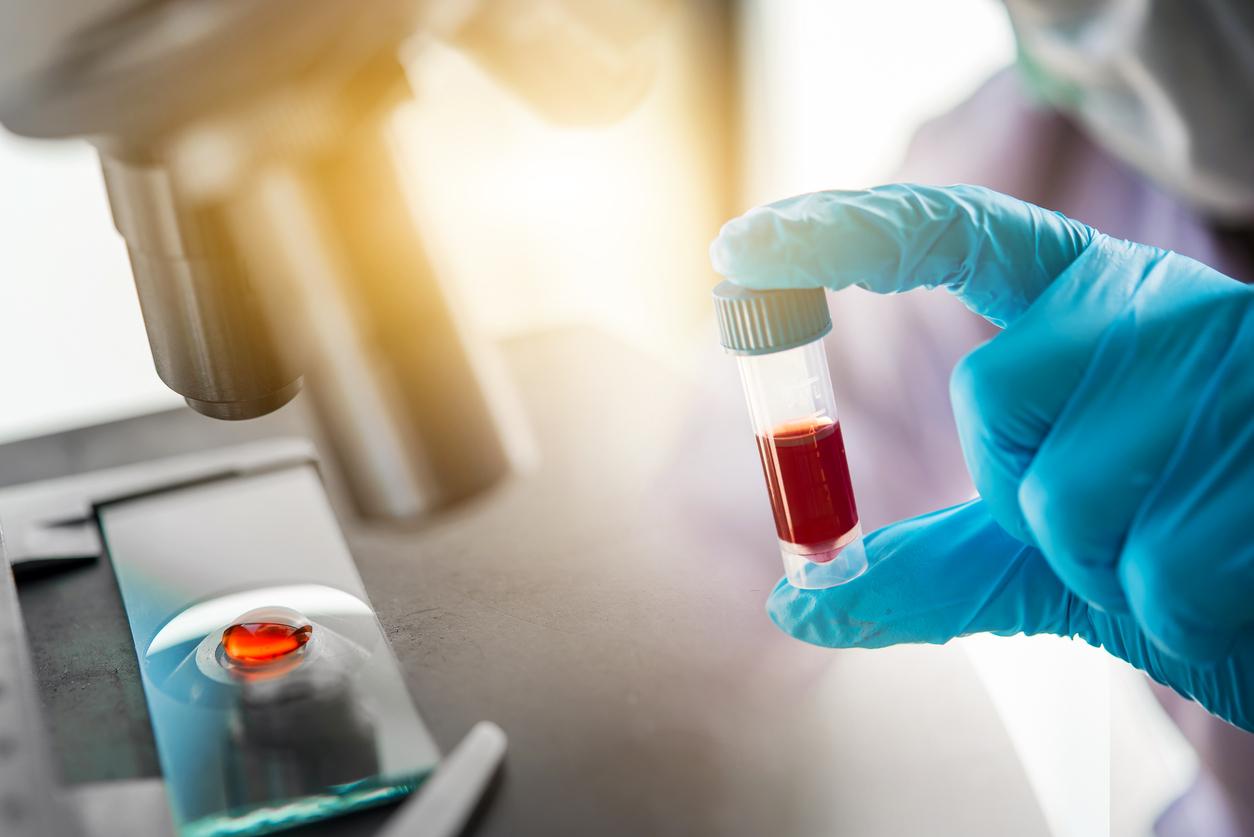To circumvent chemotherapy, heavy and sometimes ineffective, a new therapy aims to directly attack the cancerous tissue by activating the process of self-destruction of cancerous cells to eliminate them.

- Tested in the laboratory, this method allowed the cells to be destroyed in just 4 hours.
- Scientists have developed a type of molecular “brick” that will trigger a series of chemical reactions in cancer cells leading to their self-destruction.
Kill cancer from within. To find an alternative to the heavy treatments currently used to fight cancer, German researchers looked at the self-destruction process of cancer cells. “We tried to take a different approach and not influence the cancer by interfering with biochemical processes, but directly attack its structure.”, said Dr. David YW Ng, one of the authors of the study and a researcher at the Max Planck Institute. The results of the study were published on August 19 in the Journal of the American Chemical Society.
Oxidative molecules in cancer cells
Cancer is a disease in which cells multiply uncontrollably, leading to tumor growth. To combat it, chemotherapy is often used. It consists of administering chemicals that fight against the development of the tumor to slowly destroy it. This treatment is cumbersome, fraught with side effects, and can become ineffective over time as the cancer can resist the effects of the drugs and create new ways to grow further.
Scientists have developed a type of molecular “brick” that is harmless to normal cells but will trigger a series of chemical reactions in cancer cells. “In cancerous tissue, the environment is much more acidic than in normal tissuedescribes Dr. David YW Ng. In addition, much more reactive oxidant molecules are found in cancer cells due to increased cancer metabolic activity and we take advantage of this..”
Dead cells in 4 hours
Once it has entered the cancerous cells, the molecular brick will expand and deform these cells from the inside out. In reaction, the cancerous cell, unable to fight against this intrusion, will activate its self-destruction mechanism. “We thus attack the cancer cell in a way against which it cannot defend itself.”, boasts the researcher.
Scientists studied the method on cancer cells in a laboratory culture and were able to prove that the cells die in a very short time, around four hours. This method, if confirmed, could represent an alternative to cancer treatment. Researchers continue to work on increasing deformation accuracy and biodegradation after cancer cell death.
.

















